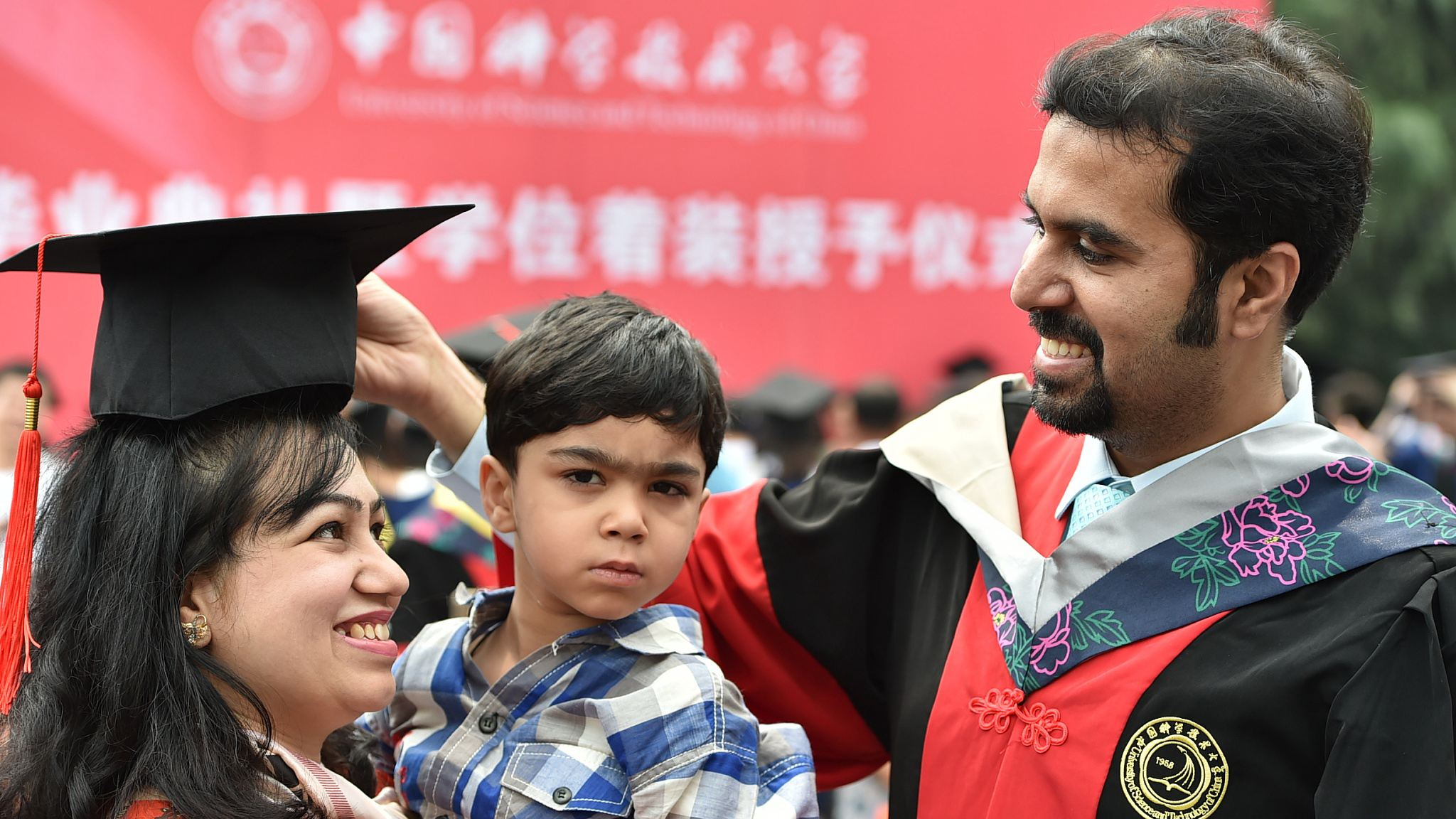
(Photo: CGTN)
There are around 25,000 Pakistani students currently studying in China, most of whom are in science and technology fields.
They enjoy a very good reputation in Chinese universities. I have met some PhD supervisors of Pakistani students in China, and most of them had nothing but good things to say about their students.
Their English language skills are very good and research approach excellent; the majority of them are obedient, well-mannered, and approachable. They are less of trouble makers and can manage life under any circumstances. They can bear pressure and meet deadlines.
I was told that hardworking and persistent are two of their qualities.
With such a positive feedback, it is little wonder that Chinese supervisors are willing to take in more and more students from Pakistan.
Most of the Pakistani students go to China for undergraduate programs, mostly engineering, but don't limit themselves to their course. They study the language, culture, traditions and politics of their host country.
Upon returning home, they earn good money for themselves and their families, all the while acting as ambassadors of China in Pakistan. They promote the Chinese culture, and help locals understand China.
They are the heroes of Sino-Pakistani friendship.
Some of our students go to China for postgraduate courses, others enroll in PhD programs directly. They usually choose English-speaking programs, but they still immerse themselves in society and open up to delving deeper in Chinese politics, traditions and economy.
These students are contributing to the socio-economic development of Pakistan and the progres of friendship with China.
However, there is a dire need to include these graduates in jobs related to the China–Pakistan Economic Corridor (CPEC) in the public sector. The Ministry of Planning and Reform (Planning Commission), in charged of the project, does not have a single person with a solid understanding of China.
Students with a deep knowledge of Chinese affairs must be given an opportunity to contribute more. Around 20,000 students in Pakistani have graduated from China, having received their degrees from there as far back as 1974, when the first batch of Pakistani students traveled to China for higher education.
Pakistan has a big pool of students who studied in China covering all levels, from fresh graduates to those at senior-level positions.
They're majored in engineering, economics, management, agriculture, health, language, journalism... At the same time, there are no real Chinese experts in the Ministry of Foreign Affairs, Board of Investment, Ministry of Communication, Ministry of Water and Power, Ministry of Railway, Ministry of Industry and Production, Ministry Agriculture...
All these bodies, which are involved directly or indirectly with CPEC, need such expertise.
In addition to opening its educational institutions to Pakistani students, China also provides short-term specialized trainings to Pakistani professionals. Scientists and experts from both sides are also engaged in communication and visits.
China has assisted in the establishment of five joint state-of-the-art laboratories in Pakistan for developing human resources in much-needed areas. There are joint research projects between the scientists of the two countries. China also provides postdoctoral research facilities to Pakistani professionals too.
China has become a major contributor to the development of human resources in Pakistan, helping the country face the challenges of 21st century.
Since the launch of the CPEC, China has especially been providing opportunities to Pakistani youth much more generously.


